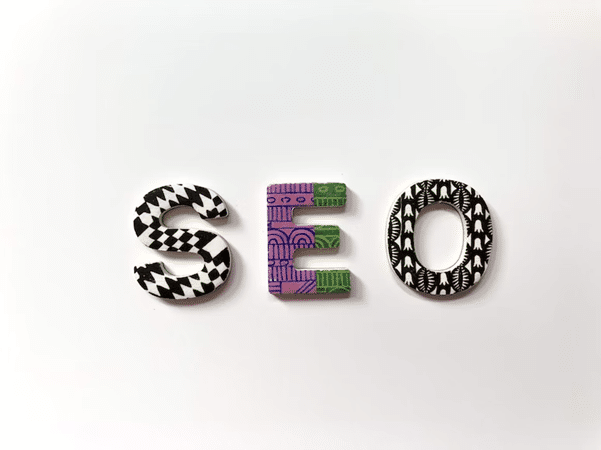Artificial Intelligence is a game-changer for SEO professionals, empowering them to tackle some of the industry’s most formidable challenges. Although it may seem complex, integrating AI into SEO is straightforward as it predominantly relies on your AI application. Effective AI use may make all the difference in scaling growth more quickly and outperforming rivals in a shorter time.
About 80% of marketers that use artificial intelligence (AI) claim quick, beneficial effects for their businesses. AI is vital for various commercial tactics, including content marketing and SEO. Every digital marketer must tap into the potential of AI to accomplish high-volume, data-intensive tasks. It’s time to embrace AI and take digital marketing to the next level!

Below is a comprehensive overview of how AI is optimizing SEO workflows and practical tips for digital marketers to leverage AI to gain a competitive edge in search.
1. Better Ranking Predictions
It shouldn’t be a surprise that there are several aspects to consider when attempting to predict rankings in SEO, including content, backlinks, technical SEO, and more. Using AI, you can now anticipate their potential influence on your website’s search engine rating.
Although AI has revolutionized SEO, human input remains crucial, especially for blogger outreach. AI offers market trend insights but can’t fully grasp searcher intent. That’s why blogger outreach agencies are a better fit.
2. Eliminating Redundant Tasks
Gaining the capacity to automate repetitive operations is one of the main benefits of AI in SEO since it frees up time and resources for more imaginative and difficult jobs. In addition to mitigating risks in your work, this approach minimizes potential errors. Refining your approach this way means smoother sailing ahead. Doing website audits, reporting, and keyword research are a few of the errands it can handle for you.
3. Performing Voice Search
AI is revolutionizing the SEO space in a big way: Voice Search. With Alexa, Google Assistant, and other AI devices ubiquitous in millions of homes, voice search for information has spiked massively, altering the search engine dynamic.
Artificial intelligence (AI)-enabled solutions may evaluate natural language searches and offer insights into how people look for information. To achieve this, long-tail keywords, conversational language, and question-based keywords are used throughout your content.
4. SERPs Analytics
Uncertainty about how Google ranks and promotes web pages has been one of the major problems facing the SEO industry from the outset. After years of inferences, testing, and research, SEO specialists have gained a greater understanding of Google’s ranking criteria, albeit imperfectly. However, with the aid of AI and data science, more insights into SERPs and web page ranking strategies are being unlocked to stay ahead of the curve.

Big data analysis is essential for better optimization decisions. In the past, SEO software used bots to crawl the SERPs and collect keyword and ranking data. Thanks to open-source Google APIs, software engineers can continue building better SEO tools that use the most comprehensive and accurate dataset. With this powerful resource at their fingertips, the possibilities are endless.
SEOs can attain faster wins and deeper insights into their website’s performance with comprehensive data. More data at their disposal empowers digital marketers to perform A/B and multivariate testing, enabling a better understanding of the optimizations that yield positive results. Such insights enable faster iterations and progressive improvements.
5. Improved Content Creation
Producing high-grade content is vital for search engine optimization (SEO). Creating material that appeals to your targeted niche may be tricky. Fortunately, AI-powered analysis of visitor data can highlight a person’s favorite key phrases, content patterns, and trends in your target market. It can also help in the development of user-focused content material.
6. Conducting Keyword Research
The right keywords can make or break your SEO campaign. AI-powered technologies aid keyword research by analyzing user intent, search traffic, and competition. Use this intel to better your content and target your keywords strategically.
7. Improving On-Page Optimization
On-page SEO aims to boost the visibility of web pages in search engine results. AI-driven technology analysis spots on-page options, like meta tags, headers, and internal links. These tools help detect and fix issues that can damage site ratings.
How does AI affect SEO and Marketing Businesses?
Artificial intelligence will assist entrepreneurs in making better judgments. It may further assist marketers in discovering new consumer trends in patron behavior, recognizing what customers say about a product or service, and predict whether a client will make a purchase.

Artificial intelligence can also help companies automate consumer segmentation and targeted advertising processes. Businesses that combine marketing automation and AI may get the most out of both technologies. For instance, AI can uncover the most pertinent information for each individual, allowing personalized messages based on their interests and preferences.
Harvard Business Review found that AI for sales yields strong benefits for businesses. This includes a 50% rise in leads, reducing call time (and trimming the lead process) by 60-70%, and lowering costs by avoiding lost leads and deals.
The SEO sector is experiencing a shift thanks to AI, which provides better optimization, quicker data processing, and higher efficiency. Overall, systems that use AI for digital marketing provide several benefits for marketers and are expected to grow significantly over the next several years.
Exactly What Does AI Entail?
AI is one of the hottest buzzwords currently. Artificial intelligence is impacting industries and increasing demand for banking, medical, IT, and even marketing and SEO services because of its ability to work around the clock.
It refers to a variety of technologies, including:
- Deep learning: Using logical structures to decipher data and emulate how humans draw conclusions.
- Natural language processing (NLP): The process of teaching computers how to understand human language
- Machine learning: Developing algorithms that mimic human learning through data.
NLP and machine learning are essential tools for search engines to understand online content and present it to searchers. This makes them particularly applicable in the SEO context. SEO software developers employ comparable algorithms and technologies to create tools that aid users in comprehending Google crawlers’ criteria for promoting and ranking web content.
Conclusion
Consumers in the modern day are more connected than ever. They expect businesses to address any problems or worries they may have promptly and efficiently. To gain a competitive edge in AI and SEO, one must stay updated with the latest developments and improvements, watching their impact on business rankings. Most businesses use AI technologies in one form or another in their SEO strategies. You must advance your understanding of AI as a marketer to stay ahead of the curve.












Leave a Reply